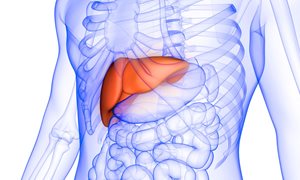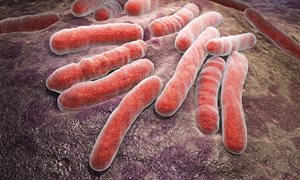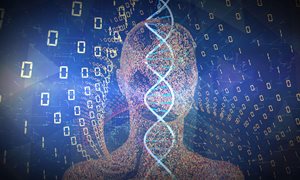
NWO has awarded 89 promising young scientists Veni funding of up to 280,000 euros. Eight of them are from Radboudumc and Radboud University. They can develop their own research ideas over a period of three years.
The Nijmegen scientists will conduct research into slowing Parkinson's disease through exercise, the genetic complexity of psychiatric disorders, how to measure fear memories in the brain, the impact of viruses on greenhouse gas emissions from soils, and more.
An overview of all the researchers and their projects:
Slow SPEED: Slowing Parkinson’s disease Early through Exercise Dosage
Sirwan Darweesh, Radboudumc, DCMN
Disease-slowing interventions have been ineffective in clinically manifest Parkinson’s disease (PD), when pathology is already advanced, but could succeed in prodromal PD, when pathology is limited. This study will investigate the feasibility and search for efficacy of a gamified-enhanced, remotely delivered exercise intervention in prodromal PD by leveraging digital biomarkers.
ACCELERATE: ZebrAfish CanCer modEl Leading thE way towaRds treAtmenT dEvelopment for phaeochromocytomas and paragangliomas.
Margo A. Dona, Radboudumc, RIMLS theme Vascular damage
Mutations in the SDHB-gene are the most important risk factor for malignant phaeochromocytomas and paragangliomas, endocrine tumours, for which no curative treatment is available. This project entails the development of a mutant zebrafish tumour model, in which treatment modalities will be tested leading to novel treatment possibilities.
Still puzzling: The genetic complexity of psychiatric conditions
M. Klein, Radboudumc, DCMN
Both our genetic predisposition and environmental factors determine whether we are healthy or sick. Combined, they are key to the development of psychiatric disorders. This research studies the interplay of all these factors to personalize diagnosis and treatment of psychiatric conditions.
Respiratory mucosal immunity: gateway to advance the prevention, diagnosis and treatment of childhood respiratory infections
Lilly Verhagen, Radboudumc, RIMLS theme Infectious diseases and global health
Blood immune markers are used to diagnose children with respiratory tract infections. However, every respiratory infection starts with a local immune response in the airways. We will study innate immune cells that are crucial for the respiratory mucosal immune response to enable future mucosal treatment strategies without antibiotic overuse.
Back in fear: Neuronal footprint of fear relapse in the brain
K. Gulmez-Karaca, Radboudumc, DCMN
Memories are stored in the brain as changes in the connectivity between neurons. This project will develop a new technology to capture the neuronal connectivity footprints of specific memories in the brain and investigate the exact mechanisms by which fear memories are stored, erased and may relapse over time.
Unravelling and quantifying the impacts of viruses on greenhouse gas emissions from soils
P. Dalcin Martins, Radboud University
Viruses in soils infect diverse forms of life. However, it is not known how this impacts soil health and greenhouse gas emissions. This research will reveal the identity and role of soil viruses. This knowledge will help to counteract climate change.
Cutting edge roots
M. Dop, Radboud University
It is important for plant development that some cells let go of the plant. The plant ensures that the correct connections between cells are broken, otherwise the plant would fall apart. The project will investigate how a plant cell determines which connections should be broken, and how this cell release happens.
Dynamic changes in proteins during embryonic development
S. Stelloo, Radboud University
During early embryogenesis, stem cells develop into various different cell types. The development of different cell types involves changes in both protein expression levels and protein-protein interactions. The researchers will investigate the dynamic changes in protein expression and interaction during the development of embryonic stem cells into more specialized cells.
 Adjusted planning
Adjusted planning
The Veni is awarded annually by NWO. These awards cover part of the Veni round 2021. In recent years NWO has had to shift the planning of the Veni rounds, forced by corona and a hack. This led last spring to a split in the planning between the various science domains. For the science domains ENW (no pre-registration phase yet) and ZonMw (not affected by the hack) NWO used the original planning from before the hack and for the domains SGW and TTW the decision making is planned for April 2022. When all decision-making has taken place, the facts and figures of the full round will be announced.
Talent Programme
Veni, together with Vidi and Vici, is part of the NWO Talent Programme (previously: the Innovational Research Incentive). Veni is aimed at excellent researchers who have recently gained their doctorates. Within the Talent Programme, researchers are free to submit their own subject for funding. In this way, NWO encourages curiosity-driven and innovative research. NWO selects researchers based on the quality of the researcher, the innovative nature of the research, the expected scientific impact of the research proposal and opportunities for knowledge utilization.
-
Want to know more about these subjects? Click on the buttons below for more news.
Related news items

Promising research on Usher syndrome
29 March 2022 Erwin van Wijk, researcher at Hearing and Genes, wants to contribute to making Usher syndrome treatable. The results so far are better than he had dared to hope. go to page
Liver tumors irradiated from inside can be followed live from outside
17 February 2022 A Dutch research team from Radboud University Medical Center has visualized the injection of radioactive microspheres during treatment of a patient with liver tumors ‘live on screen’. go to page
NIH grant for follow-up research on tuberculous meningitis
10 February 2022Met subsidie van het Amerikaanse NIH gaat With a grant from the U.S. NIH, Reinout van Crevel will continue to unravel the disease process of tuberculous meningitis.
go to page
Micro-Cosmos helps patient unwind during hospitalization
10 February 2022 Nijmegen-based Micro-Cosmos is a start-up that makes retractable hoods to speed up the recovery of hospitalized patients. go to page
LUMO Labs and Oost NL invest in Aiosyn Investment accelerates development of artificial intelligence platform to improve diagnostics
7 February 2022 Aiosyn, a spin-off from Radboudumc, has received an investment from LUMO Labs. Oost NL is a co-investor. go to page
